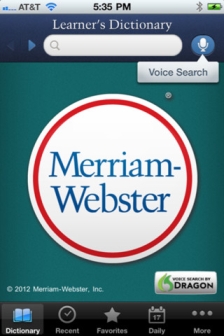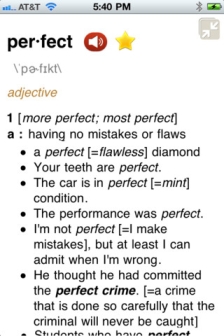- HOME
- INTRO TO THE FORUM
- USE AND MISUSE
- BADLY WRITTEN, BADLY SPOKEN
- GETTING
TO KNOW ENGLISH - PREPARING FOR ENGLISH PROFICIENCY TESTS
- GOING DEEPER INTO ENGLISH
- YOU ASKED ME THIS QUESTION
- ADVOCACIES
- EDUCATION AND TEACHING FORUM
- ADVICE AND DISSENT
- MY MEDIA ENGLISH WATCH
- STUDENTS' SOUNDING BOARD
- LANGUAGE HUMOR AT ITS FINEST
- THE LOUNGE
- NOTABLE WORKS BY OUR VERY OWN
- ESSAYS BY JOSE CARILLO
- Long Noun Forms Make Sentences Exasperatingly Difficult To Grasp
- Good Conversationalists Phrase Their Tag Questions With Finesse
- The Pronoun “None” Can Mean Either “Not One” Or “Not Any”
- A Rather Curious State Of Affairs In The Grammar Of “Do”-Questions
- Why I Consistently Use The Serial Comma
- Misuse Of “Lie” And “Lay” Punctures Many Writers’ Command Of English
- ABOUT JOSE CARILLO
- READINGS ABOUT LANGUAGE
- TIME OUT FROM ENGLISH GRAMMAR
- NEWS AND COMMENTARY
- BOOKSHOP
- ARCHIVES
Click here to recommend us!
READINGS IN LANGUAGE
This section features links to interesting, instructive, or thought-provoking readings about the English language and related disciplines. The selections could be anywhere from light and humorous to serious and scholarly, and they range widely from the reading, writing, listening, and speaking disciplines to the teaching and learning of English.
Online dictionaries are now interactive entities that can read us
In “In the Digital Era, Our Dictionaries Read Us,” an article that came out in the March 11, 2013 issue of The Chronicle of Higher Education, senior reporter Jennifer Howard observes that with the spread of digital technologies, dictionaries have become a two-way mirror, a record not just of the meaning of words but of what we want to know. “The days of displaying a thick Webster’s in the parlor may be past, but dictionaries inhabit our daily lives more than we realize,” Howard says. “For dictionary makers, going electronic opens up all kinds of possibilities. It’s not just that digital dictionaries can be embedded in the operating systems of computers and e-readers so that they’re always at hand. They can be updated far more easily and often than their print cousins, and they can incorporate material like audio pronunciations and thesauruses.”


Now that the major dictionaries have an online presence, Howard reports, people who refer to them can explore their accumulated linguistic riches in ways that don’t depend on A-B-C order. As Katherine Connor Martin, head of U.S. dictionaries for Oxford University Press, explained to her in an interview, being online has enabled the Oxford English Dictionary to put all of its enormous content into a taxonomic structure: “So if you wanted to see all the terms for, say, a ‘loose woman’ that were used in the 19th century, with a couple of clicks you could get all that information. It helps unlock the dictionary in a new way.”
Howard reports that being online now also allows the blending of once-discrete references to create a “kind of blossoming map of words and meaning” that readers can explore, as what is being done today by Vocabulary.com, which serves up not just a standard dictionary definition but so-called “blurbs”—chattier and sometimes whimsical explanations designed to help a reader understand and remember the word that’s looked up. “Dictionaries are not just static entities anymore,” the linguist Ben Zimmer, executive producer of Vocabulary.com, explained in another interview. “You have to be able to react to current events, how people are going to look things up.”
OTHER INTERESTING READINGS:
In “By Any Other Name,” an essay he wrote for the March 1, 2013 issue of The New York Times, American novelist Teddy Wayne says that if there has ever been a golden age for the unconventionally named author, it is now. Still, he confesses that having decided early on to use a pen name as a writer, he has paid lifelong attention to what people choose to call themselves, both in daily life and on the page, mulling over the possibilities and repercussions. He asks: “Is it, for example, an advantage for writers, many of whom pride themselves on iconoclasm, to have a name that stands out from the pack? What names sound more ‘writerly’ on a book cover? And what, please explain, is with the current Jonathan craze (Safran Foer, Lethem, Ames, Franzen), when earlier generations did just fine with John (Cheever, Irving, Updike, the Evangelist)?”
Read Teddy Wayne’s “By Any Other Name” in The New York Times now!
In “Gray Matter: This Story Stinks,” an article published in the March 2, 2013 issue of The New York Times, science communication professors Dominique Brossard and Dietram A. Scheufele report about what they call “the nasty effect” of online readers’ comments to the reading and understanding of articles published on the web. In their research study, Brossard and Scheufele exposed half of their sample to civil reader comments to a fictitious new technology product and the other half to rude reader comments. Those exposed to the civil comments continued to feel the same way about the technology afterwards, but to their surprise, those exposed to the rude comments ended up with a much more polarized understanding of the risks connected with the new technology. “Simply including an ad hominem attack in a reader comment was enough to make study participants think the downside of the reported technology was greater than they’d previously thought,” they reported.
Read Brossard and Scheufele’s “Gray Matter: This Story Stinks” in The New York Times now!
Click to read comments or post a comment
View the complete list of postings in this section
(requires registration to post)






